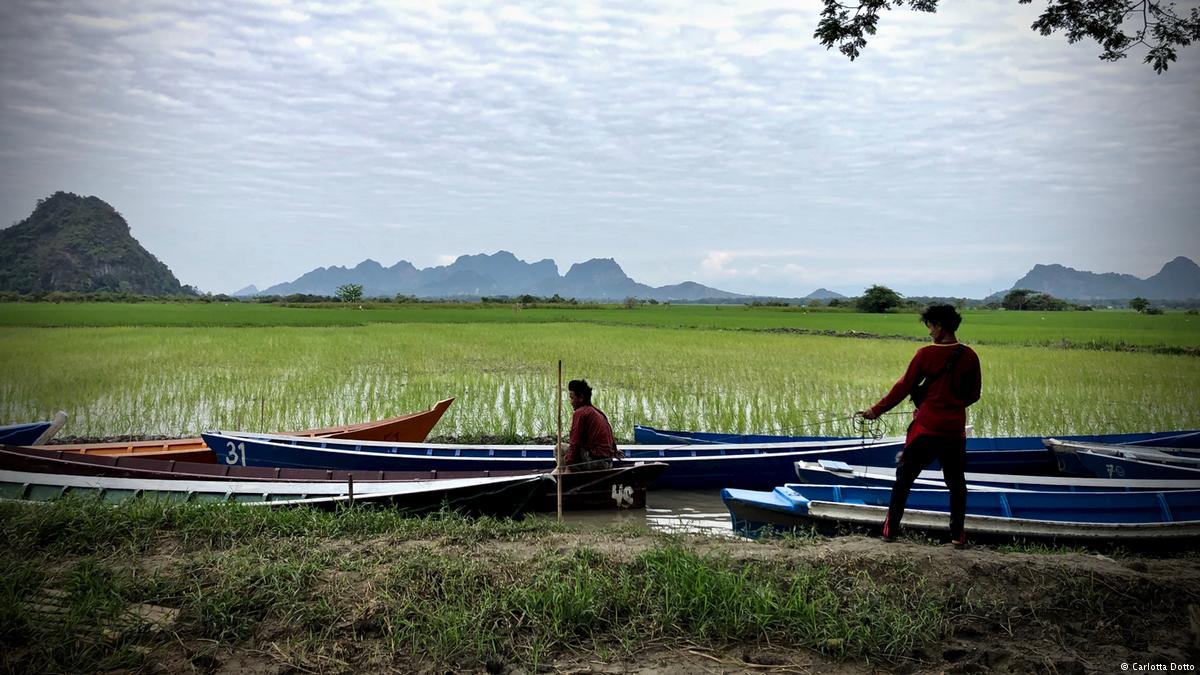Transformative Pathways

Transformative Pathways is a joint initiative led by indigenous organisations in Peru, Thailand, the Philippines, and supported by a range of Global partners. Our collective aim is to support improved conservation and sustainable use of biodiversity by recognising, supporting and expanding contributions by indigenous peoples.
LifeMosaic is part of a consortium is to work with partners to produce community training videos to support capacity building, helping to amplify IPLCs contributions to biodiversity use and conservation. We'll also be offering support to indigenous filmmakers, as well as workshops for all project partners to plan and prepare dissemination for maximum impact.
Overall, the project directly supports collective actions towards self-determined land and resource governance, biodiversity conservation and sustainable livelihoods. It will co-develop community-owned monitoring frameworks so that involved communities can collect, use and present evidence and demonstrate the outcomes of their actions.
On a wider scale, the project will work with national governments and other key actors to develop mechanisms that will allow full and equitable participation in national biodiversity-related policy and planning. This multi-year project will run for 6 years, from 2022 to 2028.
The project aims to achieve the recognition, support and scaling up of biodiversity conservation and sustainable use by indigenous peoples and local communities by:
- strengthening land and resource governance at the territory level;
- improving enabling conditions to recognize indigenous and local knowledge at the national level;
- establishing or strengthening partnerships for participation in biodiversity planning and monitoring at the local, national and global levels, including CBD processes
Indigenous peoples and local communities conserve a significant amount of the Earth’s biodiversity through their cultural practices, especially where their rights over their traditional lands, waters, resources, and knowledge are recognised and respected. Their lands cover at least a quarter of the globe and overlap significantly with biodiversity-rich areas.
However, their current and potential contributions to the conservation and sustainable use of biodiversity are not sufficiently recognised or supported despite being crucial to the fulfilment of the UN Convention on Biological Diversity (CBD) and to addressing global biodiversity and climate goals.
There is enormous potential to scale up support for these contributions and to embed them into the post-2020 global biodiversity framework.
This project recognises this and works with established, engaged networks of indigenous peoples’ organisations and allies to address the biodiversity crisis more effectively, at the local, sub-national, national, and global levels. Working with governments in Peru, Kenya, the Philippines, Thailand, and Vietnam, we recognise that sustained change requires further development and implementation of national laws and policies, as well as support from institutional mechanisms at all levels.
Working with national partners and global collaborators, the project will drive influence in global policy spaces. It will target monitoring and reporting within the UN CBD and reporting and analysis within the Intergovernmental Science-Policy Platform on Biodiversity and Ecosystem Services (IPBES), in particular to embed the contributions of Indigenous Peoples and Local Communities within these processes.
Chepkitale Indigenous People Development Project (CIPDP)
Indigenous Information Network (IIN)
The Autonomous Territorial Government of the Wampis Nation (GTANW)
CHIRAPAQ, Centro de Culturas Indígenas del Perú
Partners for Indigenous Knowledge Philippines (PIKP)
Inter Mountain Peoples Education and Culture in Thailand Association (IMPECT)
Pgakenyaw Association for Sustainable Development (PASD)
University of Oxford’s Interdisciplinary Centre for Conservation Science (ICCS)
UN Environment Programme World Conservation Monitoring Centre (UNEP-WCMC)
Asia Indigenous Peoples Pact (AIPP)
Forest Peoples Programme (FPP)
Funding for the The Transformative Pathways project is provided by the International Climate Initiative (Internationale Klimaschutzinitiative; IKI), of the German Federal Ministry for the Environment, Nature Conservation, Nuclear Safety and Consumer Protection (BMUV)
About
- Our reach
- What we do
- Impact and Feedback
- Why we Exist
- Our Story
- FAQ
- Vision / Purpose
- Principles and Values
- Filmmakers
- Transformative Pathways
- Current Partners
- Meet the indigenous leaders
"Currently in communities, there is a lack of balanced information. There is more information from companies and the government than information on how plantations affect people in reality. We need information based on people's real experience."
Human rights activist, Indonesia
